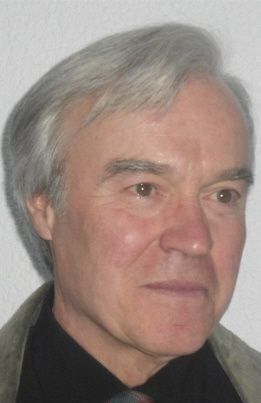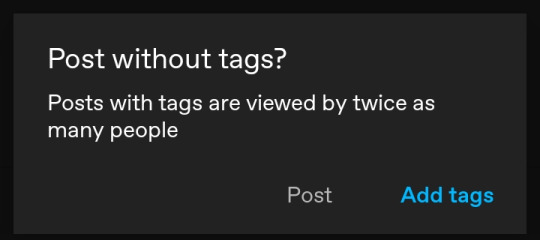#ferdinand foch
Explore tagged Tumblr posts
Text

The most powerful weapon on earth is the human soul on fire.
-- Ferdinand Foch
#sunrise#soul#fire#rising sun#ferdinand foch#travel photography#nature photography#mediterranean#mediterranean sea#reflections#hope#humanity#quote#italy#sardegna#sardinia
661 notes
·
View notes
Text

5 May 1921 was the centenary of the death of Napoleon. Marshal Foch, who led French forces to victory in World War I just a few years earlier, presented the Emperor’s sword in front of his tomb. In his eulogy, he said, “Sire, you can sleep in peace.”
At the end of his life, in a book of interviews published after his death, Marshal Foch confided his opinions on Napoleon: Fondation Napoléon
In it, he says that Napoleon’s civil and military achievements were due to “very simple, very clear principles, handled by Napoleon with dizzying mastery and virtuosity.”
#napoleon#napoleon bonaparte#napoleonic#marshal Foch#Foch#Ferdinand Foch#WWI#world war I#napoleonic wars#first French empire#French empire#napoleonic era#1920s#1921#silent film#film#tomb
18 notes
·
View notes
Text


Plaque en hommage à : Ferdinand Foch
Type : Commémoration
Adresse : 21 rue Auguste Comte, 69002 Lyon, France
Date de pose : Inconnue
Texte : Ici le Maréchal de France Foch a été reçu par ses compatriotes hauts-pyrénéens le 10 décembre 1922
Quelques précisions : Ferdinand Foch (1851-1929) est un militaire français, ayant été élevé à la dignité de Maréchal de France, notamment suite à ses actions durant la Première Guerre mondiale. Il est ainsi l'un des commandants de l'armée française durant la célèbre bataille de la Marne (1914) à l'issue de laquelle les Alliés remportent une victoire décisive, ainsi que pendant la première bataille d'Ypres. Des défaites militaires ternissent ensuite son prestige, mais il reste toutefois à des positions de commandement militaire (il est souvent en compétition ou en désaccord avec Philippe Pétain) qui lui permettent d'être l'architecte de la victoire décisive contre les Allemands en 1918. Sa santé décline à la fin des années 1920, jusqu'à son décès. Ayant reçu de multiples décorations militaires, en France comme à l'étranger (dont la Grand-Croix de la Légion d'honneur), il reçoit après sa mort de très nombreux hommages : une avenue de Lyon, ainsi que la station de métro qui s'y trouve, porte ainsi son nom. Une autre plaque commémorative en son honneur peut être trouvée à Orléans, où il résida.
#individuel#hommes#commemoration#militaires#premiere guerre mondiale#france#rhone#lyon#non datee#ferdinand foch
0 notes
Text
On veut des noms – Jean Paul Clair ( de Felix Faure à Ferdinand Foch )
FAURE Félix (1841–1899) FAURE Félix (1841–1899) : Président de la République qui tomba raide mort dans l’exercice de ses fonctions… personnelles. Léo Campion a déclaré « Il voulut être César. Mais il ne fut que Pompée. » FELLER Joachim (1638-1691) : Ecrivain, poète, bibliothécaire. Il est mort pendant son sommeil, mais d’une manière plutôt inhabituelle, somnambule, il est tombé par la…

View On WordPress
0 notes
Text
Getting into necromancy so I can call up Erich von Ludendorff's soul from whatever hell he's in and read Gundam Wing slashfic I find-and-replaced his and Luigi Cadorna's names into at him. Maybe extend it further to Gundam SEED slashfic and add Ferdinand Foch and Douglas Haig's names to the mix.

I take this as a dare, and I shan't be thought a coward.
16 notes
·
View notes
Text

“Die mächtigste Waffe der Welt ist die brennende menschliche Seele.”
— Ferdinand Foch
50 notes
·
View notes
Text
red fish, blue fish.
At first Mark wasn't interested in naming his betta fish (mostly they existed to give him something to take care of without too much investment), but when Ricken suggested naming them after his favourite activists on Twitter months after Mark adopted them, he finally bit the bullet. His red betta fish is named Commander Ferdinand Foch, and is fondly referred to as "Ferdie". Ferdie is named after a professor of military history, strategy, and general tactics who served in World War I, and whose planned Grand Offensive ultimately led to the Armistice on the 11th of November, 1918. His blue betta fish is named "Buddy", because she's Mark's little buddy.
5 notes
·
View notes
Text
"For months we have slept under the guns … We cannot comprehend the stillness.”
On the personal train carriage of General Ferdinand Foch, deep in the Forest of Compiègne, four representatives from the German Empire and four leaders of the Allied Powers met to discuss the terms of an armistice. After three days, on the 11th hour on the 11th day of the 11th month in 1918 the Armistice went into effect. Thus ending four years of unprecedented death and destruction, the Great War was finally over. Today, 105 years after this moment in history, that so drastically effected the lives of millions upon millions, we observe it as Veteran’s Day in America. Veteran’s Day is a day that we remember all of the veterans, in all of their capacities, who have served our nation. Veterans Day is a day to remember those veterans who have passed, yet even more importantly, to remember those who are living.
I listened to a great podcast this week from History That Doesn’t Suck. Professor Greg Jackson does an incredible job telling the story of the Armistice in such an interesting way, yet still including all of the names and facts that are important. Episode 146 is titled, The Armistice of November 11, 1918. It’s a little over an hour long but so worth your time.
Armistice Day 1918: 100 Years of Heroes - YouTube, video of various American troops celebrating the armistice around the world in 1918.
They Shall Not Grow Old – New Trailer – Now Playing In Theaters - YouTube, this documentary is incredible.
1918 Peerless Quartet - Goodbye France - YouTube, this song came out in 1918.
1919 Nicholas Orlando - Till We Meet Again (Charles Hart & Harry MacDonough, vocal) - YouTube, this is a favorite of mine – I didn’t realize that it was written during The Great War!
Armistice Day 1918 (1918) - YouTube, oh my the confetti being thrown at 0:18!
“This Veterans Day, may we honor the incredible faith that our veterans hold, not just in our country but in all of us. They are the solid-steel backbone of our Nation, and we must endeavor to continue being worthy of their sacrifices by working toward a more perfect Union and protecting the freedoms that they have fought to defend. In respect and recognition of the contributions our veterans and their families, caregivers, and survivors have made to the cause of peace and freedom around the world, the Congress has provided (5 U.S.C. 6103(a)) that November 11 of each year shall be set aside as a legal public holiday to honor our Nation’s veterans.
NOW, THEREFORE, I, JOSEPH R. BIDEN JR., President of the United States of America, do hereby proclaim November 11, 2023, as Veterans Day. I encourage all Americans to recognize the valor, courage, and sacrifice of these patriots through appropriate ceremonies and private prayers and by observing two minutes of silence for our Nation’s veterans. I also call upon Federal, State, and local officials to display the flag of the United States of America and to participate in patriotic activities in their communities.”
I hope that your weekend is enjoyable, fun, restful, active – whatever you need it to be. And remember our veterans.
2 notes
·
View notes
Photo

The Human Soul on Fire Poster
The Most Powerful Weapon on Earth is the Human Soul on Fire ~Ferdinand Foch Poster Quote by WOCADO 11×17 Printable FREE DOWNLOAD for a limited time (48hours) only. offer ends Monday, 23.Feb.2015 at 12 midnight PST. If you prefer to have the printed item you can order a poster or artprint or card…
soul, life quotes, power, soul quotes, powerful quotes #PRINTABLEPOSTERS, #PICTUREQUOTES, #WALLART, #DIGITALART, #QUOTES, #PRINTABLES
#soul#life quotes#power#soul quotes#powerful quotes#PRINTABLE POSTERS#PICTURE QUOTES#WALL ART#DIGITAL ART#QUOTES#PRINTABLES
5 notes
·
View notes
Text


Plaque en hommage à : Ferdinand Foch
Type : Lieu de résidence
Adresse : 5bis rue du Maréchal Foch, 45000 Orléans, France
Date de pose : Inconnue
Texte : A la mémoire du maréchal Foch qui habita cette maison de 1906 à 1908, colonel chef d'état-major puis général de brigade, commt. l'artillerie du 5e corps
Quelques précisions : Ferdinand Foch (1851-1929) est un militaire français, ayant été élevé à la dignité de Maréchal de France, notamment suite à ses actions durant la Première Guerre mondiale. Il est ainsi l'un des commandants de l'armée française durant la célèbre bataille de la Marne (1914) à l'issue de laquelle les Alliés remportent une victoire décisive, ainsi que pendant la première bataille d'Ypres. Des défaites militaires ternissent ensuite son prestige, mais il reste toutefois à des positions de commandement militaire (il est souvent en compétition ou en désaccord avec Philippe Pétain) qui lui permettent d'être l'architecte de la victoire décisive contre les Allemands en 1918. Sa santé décline à la fin des années 1920, jusqu'à son décès. Ayant reçu de multiples décorations militaires, en France comme à l'étranger (dont la Grand-Croix de la Légion d'honneur), il reçoit après sa mort de très nombreux hommages. La rue d'Orléans où est située cette plaque commémorative porte d'ailleurs son nom. D'autres plaques commémoratives en son honneur peuvent être trouvées à France, en particulier à Paris et à Lyon.
#individuel#hommes#residence#militaires#premiere guerre mondiale#france#loiret#orleans#non datee#ferdinand foch
0 notes
Text
Lakshmi Kapoor
“None but a coward dares to boast that he has never known fear.”
~Ferdinand Foch
2 notes
·
View notes
Text

Bir Kurmay Subay Doğuyor
✍🏻 Mehmet R. Aşar
Mustafa Kemal 3. Ordunun eğitim koluna görevlendirilmişti. İnançlarına uygun olarak davranışlar sergiliyordu. Politikadan çekilmiş kendini askerlik görevine vermişti. Dışarıdan gelen düşman tehditler de hükumeti orduda yenilikler yapmaya itmişti. Yapılacak çok işi vardı. İlk karşı olduğu, orduda modası geçmiş ama hala yürürlükte olan tenkit ettiği eğitim usulleriydi. Yaşlı subaylar O’nun bu tavrını beğenmiyor ve bu şımarık, bu kendini beğenmiş asi ruh, bakalım daha ne kadar ileri gidebilecek diye de merak ediyorlardı. Ama O, çok geçmeden verdiği eğitimler neticesinde askerliğe katkısının çok değerli olduğu kanaatine varan yeni yetişen subaylar arasında saygı görmeye başlamıştı bile.
Mustafa Kemal, Abdulhamit’in ordusunu yetiştirmek üzere getirttirdiği Alman subaylarının değerlerini taktir ediyor ama gelişlerini asla doğru bulmuyordu. 1909 yılının ağustos ayında eğitim manevralarının denetilmesi göreviyle Ordu Kurmay Başkanlığı emrine verildi. Bu şimdiye kadar benzeri görülmemiş bir harekâttı. Bütün bir süvari tugayı, ordu komutanları ve kurmay başkanları önünde manevralar yapılacak olması Mustafa Kemal’i heyecanlandırmış ve bunu çoktandır beklediği, özlediği askerlik hayatının bir dönüm noktasının başlangıcı olarak görüyordu. Alman askeri Heyetinin Başkanı Mareşal Von der Goltz’un bir manevrayı yönetmek için Selanik’e geleceğini öğrendi. Onun için bir manevra planı hazırladı. Diğer yüksek rütbeliler her zamanki gibi bunu hoş görmeyip küstahlık olarak nitelendirip; “Mareşal Hazretleri buraya bizlere ders vermeye geliyor, bizden ders almaya değil,” dediler. Mustafa Kemal, askerlik sanatının bu büyük üstadının bilgisinden yararlanılması gerektiğin iyi biliyor ama Türk Genel Kurmaylığının da kendi ülkesini nasıl savunulacağını ve bu konuda bir takım düşüncelere sahip olduğunu da Mareşal’in görmesi ve anlaması gerektiğini de önemli ve gerekli görüyordu. Hazırladığı harekat planını görsün de, sonra isterse beğenmeyip kendi planını uygulasın, bunda herhangi bir terslik olamazdı.
Mareşal geldi ve incelediği Mustafa Kemal’in planını uygulamaya karar verdi. Araziyi bilemediğinden, bu genç subayın yanında hiç ayrılmıyor, ondan sürakli bilgi alıyor zaman zaman da akıl danışıyordu. Mareşal’in kanatini ve tetkiklerini dinledikten sonra gururla göğsü kabardı. Artık emindi, en az Mareşal kadar askeri bilgiye ve beceriye sahipti. Bu tür manevralar gittikçe daha sık yapılmaya başlanınca haliyle Mustafa Kemal hep ön planda görülmeye başladı. Bu manevralar ona çok değerli bir tecrübe sağlamasının yanında Kolağası rütbesini aşan bir şöhret kazanmasına yol açtı.
Picardie Manevraları
12–18 Eylül 1910’da Fransa’nın Picardie bölgesinde yapılan bir tatbikattır. Fransız Mareşal Ferdinand Foch komutasında gerçekleşen bu tatbikat, Almanya’nın Berlin’de düzenlediği manevralara bir cevap niteliğinde olmuştur.
Picardie Manevraları titizlikle hazırlanmış ve tarafsız ülkelerden gözlemciler de davet edilmiştir. Osmanlı Devleti, bu manevralara Binbaşı Selahaddin Bey’i, Kolağası Mustafa Kemal‘i ve Paris’te Ataşemiliter olarak görevli bulunan Binbaşı Fethi Bey’i gözlemci olarak göndermişti. Mustafa Kemal manevralar sonunda söz alarak bazı eleştirilerde bulunur. Mustafa Kemal’in sözleri ve yorumları Mareşal Foch’un dikkatini çekince, akşam verilen ziyafete Albay rütbesinden daha küçük olanlar çağrılmadığı hâlde; protokole aykırı olarak, Mustafa Kemal’i davet eder. Picardie Manevraları hakkında Mustafa Kemal’in yorumunu, Ali Fethi Bey şöyle aktarmaktadır:
“Manevralar, tam bir düzen içinde üç gün sürdü. Son gün, Fransız ordusunun bütün dalları, iki saate yakın süren geçit resmi yaptı. Yanımda olan Mustafa Kemal, manevra sahasından ayrılırken şunları söyledi:
‘Bu kadar hazırlık sulh için yapılmaz. Aklımızı başımıza almalıyız. Çıkacak harp, bütün dünyayı ateşe atabilir ve biz bunun dışında kalmalıyız.’
Paris’e dönünce Harbiye Nezareti’ne gönderilecek raporu beraberce hazırladık ve bu kanaatimizi açıkça bildirdik. Ülkemiz için bulutları beliren bir dünya savaşından önce düşünülmesi gereken başka buhranlar, anlaşmazlıklar, için için kaynayan bunalımlar vardı.”
Mustafa Kemal, Picardie Manevraları’nı izlerken yaklaşan I. Dünya Savaşı’nın yaratacağı yıkımı sezmekte ve Osmanlı Devleti’nin takip etmesi gereken siyaseti de tespit etmektedir. Cumhuriyet Gazetesi yazarı Abidin Daver, o sırada Paris’te Mustafa Kemal’le yaptığı görüşmeyi şöyle anlatır:
“Mustafa Kemal’le, 1910 yılının Eylül ayında Paris’te, Luna Park’ta karşılaştım. Yanında Fethi Bey vardı. Bir süre önce, Fransız ordusunun Picardie’de yaptığı manevraları izlediklerini bildiğimden, çocukluğumdan beri içimdeki askerlik merakı ile kendisinden manevralar konusundaki izlenimlerini sordum. Görüşünü şöyle özetledi:
‘Uçaklar savaşta önemli rol oynayacaktır. Fransız sahra topçusu mükemmel, fakat Fransız piyadesi kırmızı pantolonlarıyla çok iyi bir hedef teşkil eder. Fransız ordusu, gereğinden fazla ateşli ve saldırgan bir ruhla yetiştirilmektedir.’
Havacılık o zaman henüz yeni tutunmuştu. Sadece, o da çok elverişli havalarda, gözlem hizmetlerinde kullanılmakta idi. İtiraf edeyim ki Mustafa Kemal’in havacılık konusundaki görüşlerinde isabet olduğuna pek inanmamıştım. Dört yıl sonra, Birinci Dünya Savaşı’nda, hava gücünün kesin etkisi görüldü. Havacılığın daha yeni filizlenmeye başladığı bir çağda, gök egemenliğinin önemini ve geleceğini görerek benimseyen Atatürk, görüş ve düşüncelerinde yanılmamıştı.”
Mustafa Kemal, savaşta hava kuvvetlerinin önemini görmüş ve yeni Türk Devleti’nin oluşumunda gerçekleştirdiği devrimlere bir yenisini daha eklemiş ve16 Şubat 1925’te Türk Tayyare Cemiyetini kurarak; Türk havacılığının gelişmesini, güçlendirilmesini sağlamıştır.
Yüce Türk Ulusuna saygıyla…
Mehmet R Aşar, Mart 2025, Antakya
“İstikbal göklerdedir!
Göklerini koruyamayan uluslar, yarınlarından asla emin olamazlar. Kanatlı bir gençlik memleketin geleceği bakımından en büyük güvencedir. Bir gün batılı ayaklar Ay’da ayaklarının izlerini bırakacaklarsa, bunların arasında bir de Türk’ün bulunması için şimdiden çalışmalara girişmek, aşamalar kaydetmek gerekir.”
Mustafa Kemal Atatürk

0 notes
Text
Bewegende Köpfe Ferdinand Foch: Frankreichs unerbittlicher Rächer
Die JF schreibt: »Er schickte Hunderttausende in den Tod im Ersten Weltkrieg, um sich an Deutschland zu rächen: Frankreichs Marschall Ferdinand Foch galt sogar seinen eigenen Landsleuten als eiskalt und brutal. Teil 12 der JF-Serie ���Bewegende Köpfe“. Dieser Beitrag Bewegende Köpfe Ferdinand Foch: Frankreichs unerbittlicher Rächer wurde veröffentlich auf JUNGE FREIHEIT. http://dlvr.it/TH8T2S «
0 notes
Text

The Glade of the Armistice
Signs of history abound beneath the oak, beech, black cherry, and other hardwoods that blanket the Forest of Compiègne (Forêt de Compiègne) in northern France. Aerial lidar surveys have mapped hidden remnants of villas, kilns, mines, roads, and hundreds of other features of archaeological interest that date to Roman and Medieval times. More recently, the forest played a prominent role in World War I.
In November 1918, after the war had raged for four years, an increasingly exhausted and diminished German army was on the verge of collapse after being pushed back during the Meuse-Argonne offensive. At the 11th hour of the 11th day of the 11th month in 1918, German representatives crossed into Allied-held territory, traveled to the Forest of Compiègne, and signed an armistice with Allied military commanders that proved to be a crucial step in ending the war.
The meetings took place deep in the forest near the village of Rethondes in the personal railway car of Ferdinand Foch, the marshal of France and commander of Allied forces. That area, the Glade of the Armistice (Clairière de l’Armistice), is now the site of a French war memorial and museum in a clearing on the left bank of the Aisne. In the satellite image above, the clearing is visible near the confluence of the Aisne and Oise rivers near Compiégne. The image was acquired by the OLI (Operational Land Imager) on Landsat 8 on September 19, 2024.
American forces played a key role in several World War I battles in this region in 1918. The American Battle Monuments Commission maintains cemeteries and memorials honoring U.S. troops that fought at Belleau Wood, Bellicourt, Cantigny, Chatau-Thierry, Montsec, and Sommepy.
In 1919, U.S. President Woodrow Wilson declared November 11 as Armistice Day to honor World War I veterans. In 1938, an act of the U.S. Congress made Armistice Day a legal holiday. In 1954, after the conclusion of World War II and the Korean War, Congress amended the act and renamed the holiday Veterans Day to honor all military veterans of the United States Armed Forces.
NASA Earth Observatory image by Wanmei Liang, using Landsat data from the U.S. Geological Survey. Story by Adam Voiland.
0 notes

